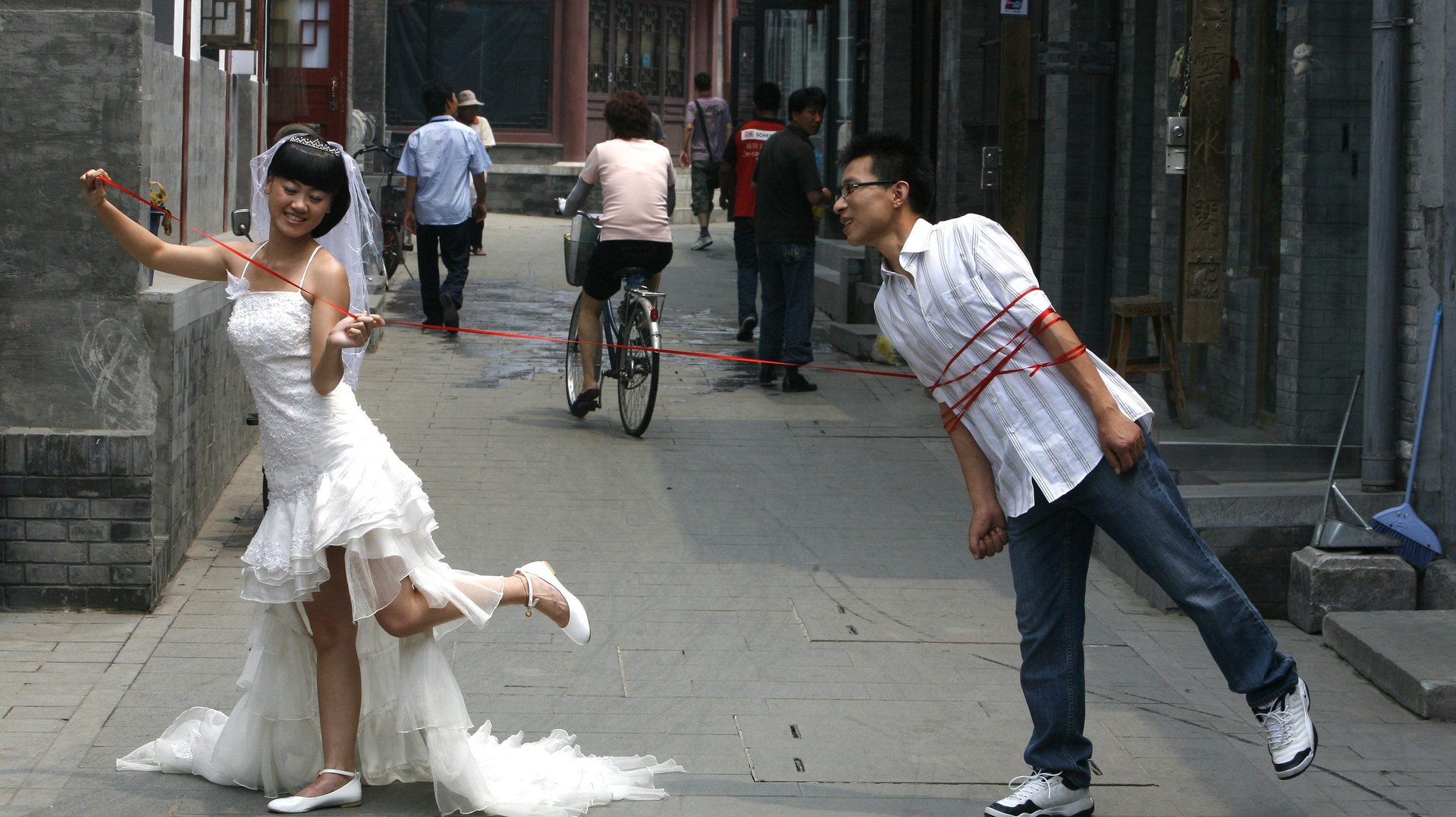China is setting up special economical wedding zones
The Chinese Communist Party is a believer in the idea that social campaigns and top-down orders are a good way to tackle personal behavior shaped over decades. It’s now turning to this approach to rescue the country’s declining marriage rate.


The Chinese Communist Party is a believer in the idea that social campaigns and top-down orders are a good way to tackle personal behavior shaped over decades. It’s now turning to this approach to rescue the country’s declining marriage rate.
On May 24, the northern Chinese province of Hebei announced that (link in Chinese) it has set up five “pilot zones” where authorities will carry out a three-year experiment to weed out wedding traditions such as hefty “bride prices,” extravagant ceremonies, and vulgar wedding games, according to a document (link in Chinese) published on the website of the Hebei Civil Affairs department. The designated zones include the Xiong’an New Area, a project launched by Chinese president Xi Jinping in 2017 to take over some administrative functions from Beijing, which neighbors Hebei, to reduce some of the capital city’s burden.
Beyond the five areas in Hebei, China has set up another 15 similar experimental wedding zones across the country, ranging from cities in the northern autonomous region of Inner Mongolia to a district in the southern Chinese city of Chengdu, according to an announcement by the national Civil Affairs Department in April.
“The experimental zones need to use the Xi Jinping Thought on Socialism as guiding theory…to actively cultivate and execute the core socialist values, pushing through the transformation of wedding traditions, inheriting and developing excellent traditional Chinese marriage and family culture, and advocating the society to develop correct marriage and family values,” wrote the document from the department, referring to the Communist leader’s ideological blueprint for how to lead China.
Underlying the Party-style jargon is the government’s deep worry about China’s dropping marriage rate, with the number of marriages declining 12% to 8.1 million in 2020. That is tightly linked to another major demographic problem—China’s shrinking birth rate. Census figures show only 12 million babies were born in 2020.
Many have attributed the low marriage rate to rising bride prices—the inverse of dowry in India—in which money or assets are given by the groom to the bride or her family as the prerequisite for marriage. In some cases, the price can be as high as 1 million yuan ($156,803), but in some other situations, the bride won’t ask for any such price, depending on local traditions and the couple’s keenness to get married. Bride price is more commonly seen in China’s rural areas, where there are a large number of single males, who often have to rely on their parents’ lifetime savings to pay off the price. In cities, discussions about bride price aren’t as explicit, and have evolved into making sure a potential spouse possesses property, a car, or other signifiers of financial stability.
🎧 For more intel on the wedding industry, listen to the Quartz Obsession podcast episode on Indian weddings. Or subscribe via: Apple Podcasts | Spotify | Google | Stitcher.
Beijing’s efforts, which appear to be intended to help lower-income men, seem unlikely to have an immediate impact on increasing the marriage rate.
After all, the fundamental reason for the emergence and proliferation of hefty bride prices is the country’s highly skewed sex ratio at birth, which is a result of families’ long-standing preference for male babies. Last year, China had nearly 35 million more men than women.
To reverse the trend, Beijing in 2015 abolished its one-child policy that had prompted families to have abortions of female babies, but so far the policy change hasn’t yielded many results. In part, ideas about the ideal family size for many women (and men) of childbearing age have likely been deeply set by their own experiences as only children.
Added to that, Chinese women with higher career aspirations are increasingly aware of the discrimination they face in job hiring from employers concerned they may take childcare leave, as well as the skewed childcare responsibilities that fall on them in family life. Given these norms, “healthy” wedding customs led by Party ideology probably won’t be much of a motivation to tie the knot.